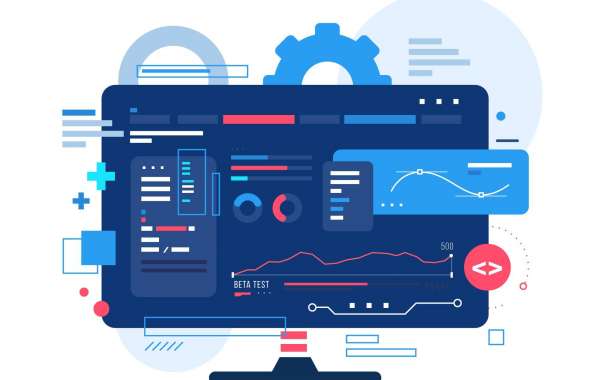The Importance of Data Security in Hospital Management Systems
Hospital management systems handle vast amounts of sensitive patient data, including personal information, medical histories, diagnoses, and treatment plans. This data is invaluable to healthcare providers but also presents a significant target for cybercriminals. Breaches in data security can lead to severe consequences, including identity theft, financial loss, and, most critically, compromised patient care.
Ensuring data security in hospital management system development is essential to protect against these threats. By integrating advanced security protocols and following industry best practices, healthcare providers can minimize the risk of data breaches and ensure that patient information remains confidential.
Key Security Challenges in Hospital Management Systems
Data Breaches and Cyber Attacks: Hospitals are increasingly targeted by cybercriminals seeking to steal or ransom patient data. A successful attack can lead to the exposure of sensitive information, causing significant harm to both patients and the healthcare institution.
Insider Threats: Employees with access to hospital management systems can pose a risk if they misuse their privileges, whether intentionally or accidentally. Insider threats are challenging to detect and can lead to data leaks or unauthorized access to sensitive information.
Compliance with Regulations: Healthcare providers must comply with stringent regulations, such as the Health Insurance Portability and Accountability Act (HIPAA) in the United States, which mandates strict standards for the protection of patient information. Non-compliance can result in hefty fines and damage to the institution's reputation.
Legacy Systems and Integration: Many hospitals still rely on outdated systems that may lack modern security features. Integrating these legacy systems with newer technologies can create vulnerabilities if not handled carefully.
Strategies for Safeguarding Patient Information
To protect patient data effectively, hospital management system development should incorporate a comprehensive approach to security. Here are some key strategies:
Encryption of Data: Encrypting patient data both at rest and in transit is a fundamental security measure. Encryption ensures that even if data is intercepted or accessed without authorization, it remains unreadable and unusable.
Access Control Mechanisms: Implementing strict access controls is crucial to limit who can view or modify patient information. Role-based access control (RBAC) ensures that only authorized personnel have access to sensitive data based on their job functions.
Regular Security Audits and Penetration Testing: Conducting regular security audits and penetration testing helps identify and address potential vulnerabilities in the hospital management system. These proactive measures can prevent security breaches before they occur.
Employee Training and Awareness: Educating healthcare staff about data security best practices is essential to minimizing the risk of human error. Regular training sessions on topics such as phishing, password management, and data handling can help employees recognize and avoid security threats.
Secure System Integration: When integrating legacy systems with new hospital management software, it's vital to ensure that data security is not compromised. This can be achieved by using secure APIs, conducting thorough testing, and implementing additional security layers where necessary.
Compliance Monitoring: Healthcare providers should continuously monitor their systems for compliance with relevant regulations. Automated tools can assist in tracking compliance and identifying any areas that require attention.
The Role of Hospital Management System Development in Data Security
Hospital management system development plays a critical role in ensuring data security. Developers must prioritize security at every stage of the software development lifecycle, from initial design to deployment and maintenance. This includes adopting secure coding practices, performing thorough testing, and staying up-to-date with the latest security trends and technologies.
Moreover, collaboration between developers, healthcare providers, and cybersecurity experts is essential to creating a hospital management system that is both functional and secure. By working together, these stakeholders can identify potential risks and implement effective solutions to safeguard patient information.
Conclusion
Data security in hospital management systems is a critical concern that requires ongoing attention and proactive measures. As healthcare providers continue to adopt digital solutions, ensuring the security of patient information must remain a top priority. By implementing robust security practices during hospital management system development and maintaining a strong security posture, hospitals can protect patient data, comply with regulations, and build trust with their patients. In an era where data breaches are increasingly common, safeguarding patient information is not just a legal obligation—it's a moral imperative.




